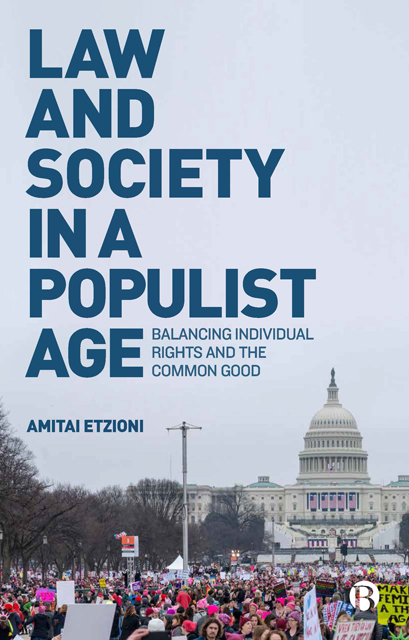eight - How liberty is lost
Published online by Cambridge University Press: 21 April 2023
Summary
In the wake of numerous recent changes made in American law and that of many other countries following the September 11, 2001 terrorist attacks, civil libertarians, libertarians, and many others have raised concerns that the nations involved are sacrificing their liberty to enhance their safety. Senator Patrick Leahy expressed concern that the United States was “shredding [its] Constitution.”Civil libertarian organizations such as the ACLU have described the government’s penchant toward obtaining new powers after September 11 as an “insatiable appetite,” characterized by government secrecy, a lack of transparency, rejection of equality under the law, and “a disdain and outright removal of checks and balances.”Articles in the popular press express similar sentiments. Writing in the American Prospect, Wendy Kaminer expressed the fear that, “Give the FBI unchecked domestic spying powers and instead of focusing on preventing terrorism, it will revert to doing what is does best—monitoring, harassing, and intimidating political dissidents and thousands of harmless immigrants.”In short, it has been argued that in order to protect ourselves from terrorists, democracy may be endangered, if not lost.
The question, “Under what conditions is democracy undermined?” has been the topic of considerable previous deliberations, especially by people who have studied the fall of the Weimar Republic and the rise of the Nazis in Germany. However, for the last decades, much more focus has been on the question of how to help democracy grow in countries that have had little previous experience with this form of governance (for instance, some former communist states and a fair number of developing nations), rather than on how democracy might be lost. Given the recent events and claims, the latter question deserves to be revisited. This question is particularly germane because, if it were true that in order to survive future waves of terrorist attacks (including ones using weapons of mass destruction) we must turn our free societies into garrison states, many members of free societies might well be reluctant to accept such a trade-off.
Fortunately, the empirical basis for such a study of the conditions under which democracy is actually lost is very limited because democracy—once firmly established—has almost never been lost due to internal developments (as distinct from occupation by an invading force).
- Type
- Chapter
- Information
- Law and Society in a Populist AgeBalancing Individual Rights and the Common Good, pp. 127 - 140Publisher: Bristol University PressPrint publication year: 2018



